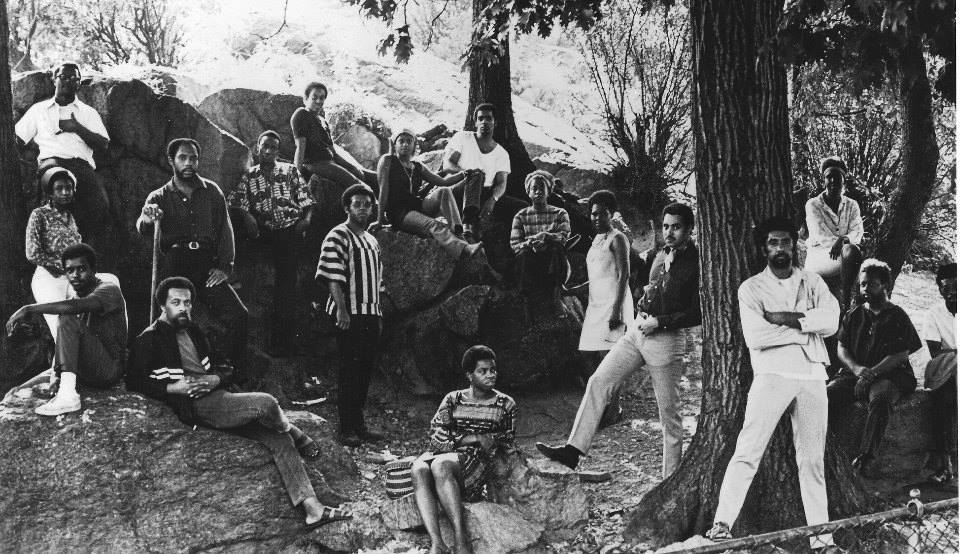Here is a clip from the documentary HARLEM THEATRE (Wildenhahn, 1968), in which Robert Macbeth discusses the subversive power of Black theatre.
HARLEM THEATRE (1968) is a ninety-minute, documentary that was made for German television by filmmaker Klaus Wildenhahn. The movie, filmed just after the assassination of Martin Luther King Jr., follows Harlem’s New Lafayette Theatre members as they rehearse for their upcoming season and run politically radical workshops in the community.
Founded by actor-director Robert Macbeth, the New Lafayette Theatre was a significant institution within the Black Power Movement. Ed Bullins, the theatre’s playwright-in-residence had been the Black Panther’s Minister of Culture. In addition to recording the theatre’s workshops, the movie contains street interviews with Harlem’s residents, and scenes from the Black Panther fundraising event held at Fillmore East for Eldridge Cleaver.
The movie is a powerful political and historical document that speaks to today’s concerns regarding justice for black people, the instrumentality of art to bring about change, and the limited opportunities available to black performers. Today’s renewed interest in the Black Panthers also makes the film timely. (16MM, B/W, English Language)
Some of the Many Outstanding Moments From the Movie:
- A young Ed Bullins reading for the first time to the NLT members the prologue to one of his most famous plays In the Wine Time. The theater would go on to perform the play that winter.
- Black Panther leader Bobby Seale delivering a speech at a fundraiser held at Fillmore East.
- Robert Macbeth’s “Method” workshops.
- George Lee Miles, Gary Bolling, and Helen Ellis rehearsing for their performance of Bullins’s play How Do You Do.
- A humorous sequence in which Macbeth, Ellis, and Roscoe Orman appear on the Sonny Fox show and are interviewed by New York Times theater critic Stewart Klein.
- Street interviews and scenes with people in Harlem (including Jackie Robinson, baseball player, civil rights activist, co-founder of Freedom Bank).
- Scenes of street parties and people dancing to the Jazzmobile.
- The theatre company led workshops held for the children in the community. Improvisation scenarios were often politically charged: Two twelve year old boys are asked to act out a scene in which they are political prisoners of the state who have been sentenced to death.
The above clip was transferred by collector Ira Gallen, from a print of the film that has since been lost. The only known surviving ninety minute, English language print of HARLEM THEATRE exists in an archive, with highly restricted access. To the best of our knowledge the film has never been screened publicly in the US, although the dubbed German language film has received a wide reception in Central Europe. We believe this movie captures a significant moment not only in the theatre’s history, but in American history. The movie should be preserved and made more readily accessible to researchers and the public.
IMPORTANT UPDATE: In early 2018, on the movie’s 50th anniversary, Ira Gallen located his print of the film in his storage unit. He generously paid to have the movie digitized. The documentary screened for the first time ever in the US at Union Docs in Brooklyn in August. It will finally return home to Harlem, December 15th at Maysles Documentary Center.
